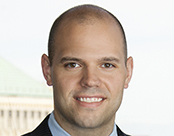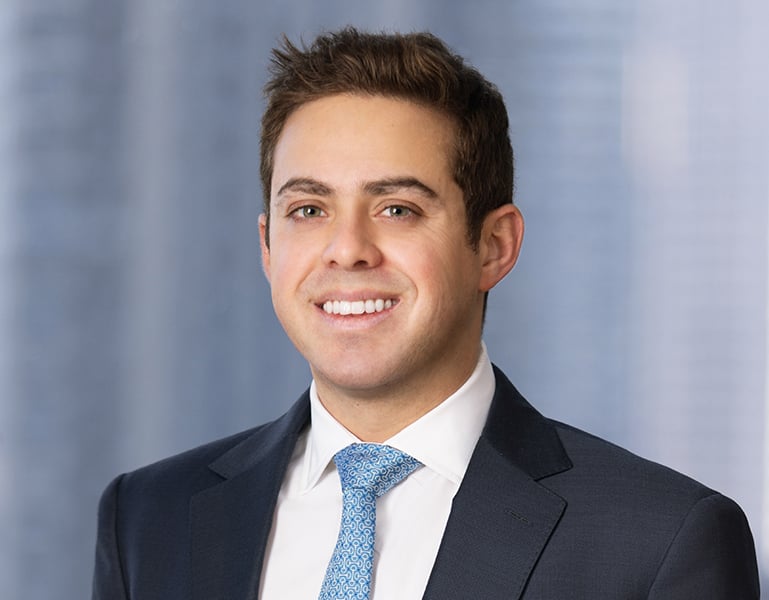East Palestine Derailment Lawsuits Highlight the Limits of Lessor Liability
Despite Northfolk Southern’s attempt to shift responsibility relating to the 2023 East Palestine train derailment to railcar owners and lessors, the resolution of a pair of recent lawsuits yielded positive results for railcar owners and lessors.
On February 3, 2023, 38 railcars carrying hazardous materials on a Norfolk Southern freight train derailed in East Palestine, Ohio when the bearing of one of the railcars overheated, caught fire, and failed. The derailment caused an assortment of hazardous materials and chemicals in the cars to spill and catch fire. Following the derailment, officials blew open five tank cars carrying vinyl chloride in a “vent and burn” operation. This operation generated a massive black plume of smoke that spread over the surrounding area and forced evacuations of around 2,000 local residents. The derailment was one of the worst rail disasters in the United States in recent memory.
Since the derailment, Norfolk Southern has faced an onslaught of lawsuits, including a Comprehensive Environmental Response, Compensation and Liability Act (CERCLA) claim brought by the federal government and a large scale class action suit brought by residents and businesses in the East Palestine area. In both these suits Norfolk Southern sought to shift some of the liability to railcar owners and shippers, but was unsuccessful.
CERCLA Claim
In the aftermath of the derailment, the U.S. Environmental Protection Agency (EPA) issued a CERCLA Unilateral Administrative Order to Norfolk Southern. This order required the company to undertake all necessary response actions to address the contamination resulting from the derailment, including the removal of large amounts of contaminated soil and water. The scope of this extensive cleanup cost the railroad more than a billion dollars. Norfolk Southern sought contribution from the shippers and railcar owners under provisions of CERCLA that distribute cleanup costs among the relevant parties.[i]
Specifically, Norfolk Southern claimed that the shippers and railcar owners were liable to contribute to the cleanup costs under Section 113(f) of CERCLA on the basis that they “owned and operated” a facility at which hazardous substances were disposed of.[ii] However, Norfolk Southern’s argument ignored the fact that CERCLA specifically defines any common or contract carrier that has accepted a hazardous substance for transportation as the “owner or operator.” Thus, the court found that Norfolk Southern, not the shippers or railcar owners, was the owner or operator and responsible under CERCLA for any release of hazardous substances that occurred.[iii]
Class Action Lawsuit
Norfolk Southern also faced a class action lawsuit brought by individuals who lived, worked, owned property and operated businesses near the East Palestine derailment.[iv] In April of 2024, Norfolk Southern agreed to pay $600 million to settle the lawsuit. Subsequently, Norfolk Southern filed a motion in the U.S. District Court for the Northern District of Ohio to have GATX (the owner of the railcar that failed and caused the derailment) and Oxy Vinyls (the owner of the vinyl chloride that was discharged and burned) share the cost of the settlement.[v] While Norfolk Southern and Oxy Vinyls ultimately reached an undisclosed settlement, the claim against GATX was decided by a jury in April 2025.[vi]
Norfolk Southern argued that GATX should have been more diligent in the maintenance of the railcar, particularly considering that it had been damaged several years earlier when it was caught in the floodwaters of Hurricane Harvey. However, the jury seemed to accept GATX’s position that it had complied with all relevant rules and regulations and that it was Norfolk Southern’s responsibility to identify and repair any damage, concluding that GATX was not responsible for any of the $600 million settlement.[vii]
Key Takeaways for Railcar Owners
The results in these two lawsuits underscore the legal limitations in claiming against passive railcar owners and financiers relating to railcar derailments and accidents. However, it remains critical that railcar owners and financiers ensure that their contractual provisions clearly allocate responsibility for maintenance, repair, operation and inspection of the railcars and that appropriate indemnity and insurance coverage is in place.
[i] Ohio ex rel. Yost v. Norfolk S. Ry. Co., No. 4:23-CV-00517, 2024 WL 964597, at *1 (N.D. Ohio Mar. 6, 2024).
[ii] Id.
[iii] Id.
[iv] In re: East Palestine Train Derailment, No. 4:23‑cv‑00242, Doc. 783 (N.D. Ohio 2025).
[v] In re: East Palestine Train Derailment, No. 4:23‑cv‑00242, Doc. 430 (N.D. Ohio 2024).
[vi] In re: East Palestine Train Derailment, No. 4:23‑cv‑00242, Doc. 784 (N.D. Ohio Apr. 23, 2025).
[vii] Id.
Vedder Thinking | Articles East Palestine Derailment Lawsuits Highlight the Limits of Lessor Liability
Article
September 9, 2025
Despite Northfolk Southern’s attempt to shift responsibility relating to the 2023 East Palestine train derailment to railcar owners and lessors, the resolution of a pair of recent lawsuits yielded positive results for railcar owners and lessors.
On February 3, 2023, 38 railcars carrying hazardous materials on a Norfolk Southern freight train derailed in East Palestine, Ohio when the bearing of one of the railcars overheated, caught fire, and failed. The derailment caused an assortment of hazardous materials and chemicals in the cars to spill and catch fire. Following the derailment, officials blew open five tank cars carrying vinyl chloride in a “vent and burn” operation. This operation generated a massive black plume of smoke that spread over the surrounding area and forced evacuations of around 2,000 local residents. The derailment was one of the worst rail disasters in the United States in recent memory.
Since the derailment, Norfolk Southern has faced an onslaught of lawsuits, including a Comprehensive Environmental Response, Compensation and Liability Act (CERCLA) claim brought by the federal government and a large scale class action suit brought by residents and businesses in the East Palestine area. In both these suits Norfolk Southern sought to shift some of the liability to railcar owners and shippers, but was unsuccessful.
CERCLA Claim
In the aftermath of the derailment, the U.S. Environmental Protection Agency (EPA) issued a CERCLA Unilateral Administrative Order to Norfolk Southern. This order required the company to undertake all necessary response actions to address the contamination resulting from the derailment, including the removal of large amounts of contaminated soil and water. The scope of this extensive cleanup cost the railroad more than a billion dollars. Norfolk Southern sought contribution from the shippers and railcar owners under provisions of CERCLA that distribute cleanup costs among the relevant parties.[i]
Specifically, Norfolk Southern claimed that the shippers and railcar owners were liable to contribute to the cleanup costs under Section 113(f) of CERCLA on the basis that they “owned and operated” a facility at which hazardous substances were disposed of.[ii] However, Norfolk Southern’s argument ignored the fact that CERCLA specifically defines any common or contract carrier that has accepted a hazardous substance for transportation as the “owner or operator.” Thus, the court found that Norfolk Southern, not the shippers or railcar owners, was the owner or operator and responsible under CERCLA for any release of hazardous substances that occurred.[iii]
Class Action Lawsuit
Norfolk Southern also faced a class action lawsuit brought by individuals who lived, worked, owned property and operated businesses near the East Palestine derailment.[iv] In April of 2024, Norfolk Southern agreed to pay $600 million to settle the lawsuit. Subsequently, Norfolk Southern filed a motion in the U.S. District Court for the Northern District of Ohio to have GATX (the owner of the railcar that failed and caused the derailment) and Oxy Vinyls (the owner of the vinyl chloride that was discharged and burned) share the cost of the settlement.[v] While Norfolk Southern and Oxy Vinyls ultimately reached an undisclosed settlement, the claim against GATX was decided by a jury in April 2025.[vi]
Norfolk Southern argued that GATX should have been more diligent in the maintenance of the railcar, particularly considering that it had been damaged several years earlier when it was caught in the floodwaters of Hurricane Harvey. However, the jury seemed to accept GATX’s position that it had complied with all relevant rules and regulations and that it was Norfolk Southern’s responsibility to identify and repair any damage, concluding that GATX was not responsible for any of the $600 million settlement.[vii]
Key Takeaways for Railcar Owners
The results in these two lawsuits underscore the legal limitations in claiming against passive railcar owners and financiers relating to railcar derailments and accidents. However, it remains critical that railcar owners and financiers ensure that their contractual provisions clearly allocate responsibility for maintenance, repair, operation and inspection of the railcars and that appropriate indemnity and insurance coverage is in place.
[i] Ohio ex rel. Yost v. Norfolk S. Ry. Co., No. 4:23-CV-00517, 2024 WL 964597, at *1 (N.D. Ohio Mar. 6, 2024).
[ii] Id.
[iii] Id.
[iv] In re: East Palestine Train Derailment, No. 4:23‑cv‑00242, Doc. 783 (N.D. Ohio 2025).
[v] In re: East Palestine Train Derailment, No. 4:23‑cv‑00242, Doc. 430 (N.D. Ohio 2024).
[vi] In re: East Palestine Train Derailment, No. 4:23‑cv‑00242, Doc. 784 (N.D. Ohio Apr. 23, 2025).
[vii] Id.

